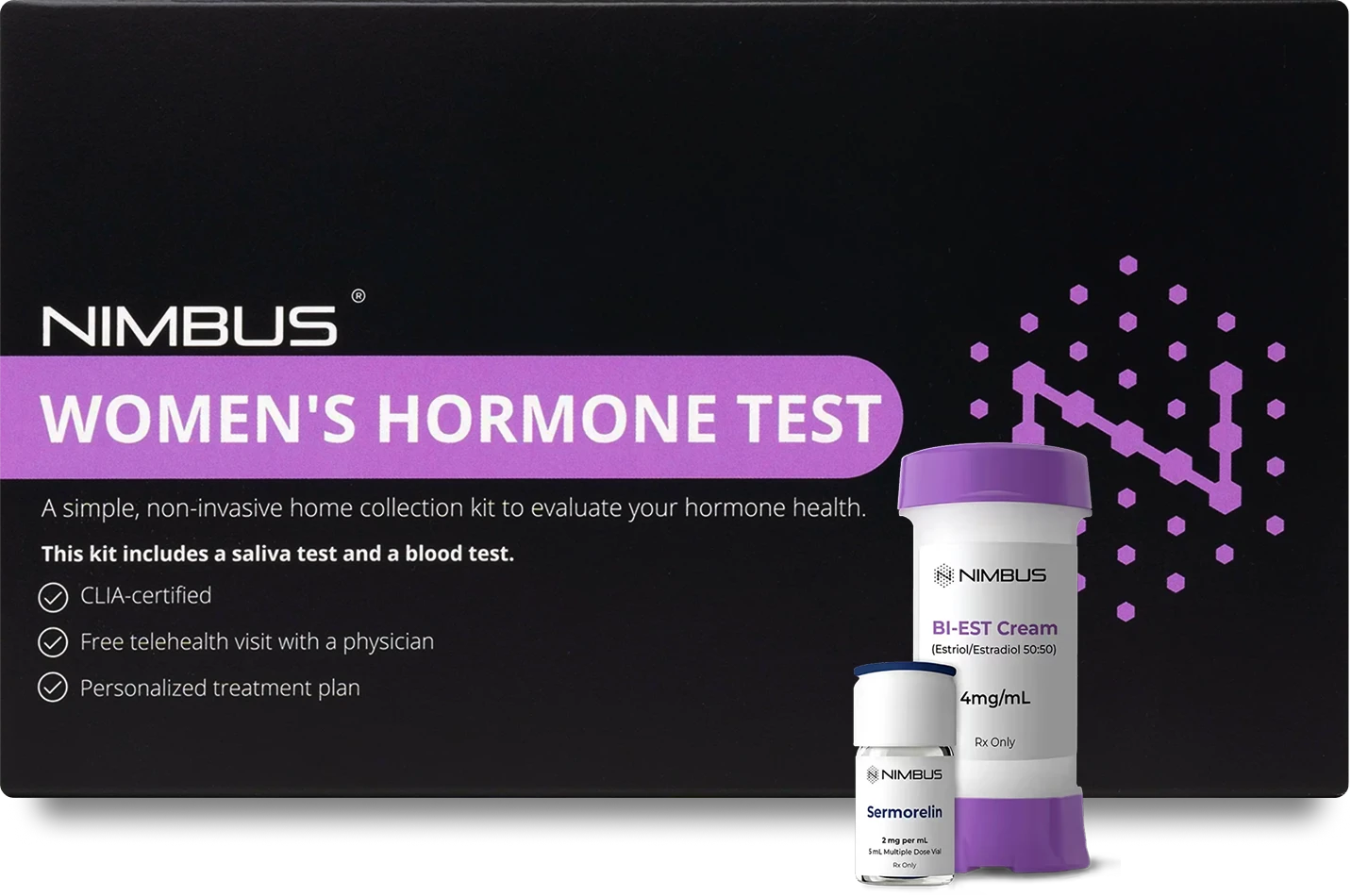Weight
Women’s Hormone Test Kit
A simple at-home sample collection kit to evaluate your overall hormone health. We test the levels of your estradiol, progesterone, cortisol, thyroid, and total testosterone. Your test results will provide detailed information on
Buy Now

What we test
Your test results will provide information on these 6 key biomarkers. This can help you understand whether your hormones are within normal ranges or if any abnormal levels may be causing symptoms that keep you from feeling like yourself.
FAQ
How do I know if I am a candidate for Nimcore Women?
If you’re experiencing symptoms such as fatigue, hot flashes, mood swings, low libido, irregular periods, or difficulty sleeping, these may be signs of hormone imbalance. The Nimbus Women’s Hormone Test, combined with a consultation, helps identify the underlying causes so your provider can recommend the most appropriate treatment for you.
How do I get started with NimCore Women, and what can I expect during the process?
To begin with NimCore Women, you first order your hormone test kit, which is delivered to your home. Once you receive it, you activate the kit online using the unique code included. During activation, you’ll complete a detailed health assessment that helps us understand your symptoms and health history. Then, you collect your sample at home using the kit and send it back to the lab for processing. Results typically take 7 to 10 business days. After your results are ready, you’ll be invited to schedule a free appointment with a licensed provider who will review your results and assessment to create a personalized treatment plan.
What hormones and health markers are tested in the NimCore Women kit?
The test measures key hormones related to women’s health, including estrogen, progesterone, testosterone, thyroid hormones, cortisol, and other important biomarkers. This comprehensive analysis helps identify hormone imbalances that may affect mood, energy, sleep, and overall well-being.
How often should I retest my hormone levels?
Follow-up testing is typically recommended every 3 to 6 months. Your provider will guide the timing based on your treatment plan and how you're responding to therapy.
When can I expect to see results from hormone replacement therapy?
Some women notice early improvements in areas like energy, mood, or focus within the first few weeks while other changes such as better sleep, balanced cycles, or increased libido may take longer. Everyone responds differently and progress often builds gradually as your treatment is fine-tuned. Ongoing check-ins allow for adjustments to ensure your therapy continues to meet your needs.






.svg)

